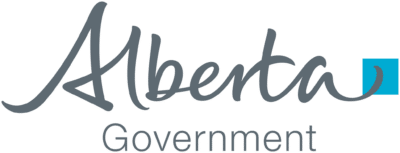If the thought of doing taxes makes you cringe, you’re not alone! Here are some simple tips to help you de-stress when filing your business taxes.
Know What You Can Claim If Running a Home-Based Business
The Canada Revenue Agency (CRA) recognizes that many small businesses operate out of their homes, and because of this, a deduction is allowable in proportion to the amount of space that is used for the business. Some expenses eligible for claim are:
- home insurance
- property taxes
- interest on your mortgage
- utilities
Another option is to charge a reasonable amount of rent to your business for the use of the space in your home. However, keep in mind that any rent amounts charged to the company should then be taken into income by you on your personal tax return.
Assess Your Motor Vehicle Expenses
Vehicle costs is an expense often overlooked by many small businesses. If you have a vehicle that you use for both personal and business purposes, you are eligible to claim the portion of expenses in relation to your business. The CRA requires you to keep a mileage log detailing your starting and ending odometer reading, along with the date of your trips and the total kilometres travelled for business purposes. This mileage log is essentially your proof for the amount of your claim and determines the percent of motor vehicle expenses you can deduct from your business income. You can claim the business portion of expenses such as:
- fuel
- insurance
- interest on vehicle loans
- maintenance
- leasing costs, etc.
When purchasing a vehicle for both business and personal purposes, be sure to weigh all of your options. It is likely more favourable for a shareholder of a corporation to purchase a vehicle in their personal name, and then charge the company for the business use of the vehicle, rather than purchasing the vehicle in the business’ name. If you choose to purchase the vehicle under the company name, and also use the vehicle for personal purposes, the company is required to calculate a shareholder benefit which is added into your income.
Explore Your Options When Taking Income from Your Company
If your business is a corporation, you have options as to how you will receive income from the corporation. Some people take a salary, while others are paid via dividends. You can also take a mix of dividends and salary. It is important to know how each works and how it will affect you and your business so be sure to always have a detailed discussion with your accountant to find out which structure works best for you.
A Tidbit on Salary and Dividends
With a salary, the corporation can take the salary paid to you as a deduction, thus reducing the corporation’s tax. The salary is then included on your personal tax return. Dividends are paid out to shareholders of the corporation with after-tax earnings. In other words, retained earnings. Dividends are not taken as a deduction to the company since they are paid out with after-tax dollars. The shareholder includes dividend income on their personal income tax return; however, they are entitled to a dividend tax credit. This can sometimes put the shareholder into a better net cash flow position in comparison to taking the same amount of income as salary.
Tax time doesn’t have to be stressful if you have an accountant who understands your small business needs. Don’t have an accountant? Don’t fret. Get access to local business experts right on our website.
Visit guest author Roth Schroder Professional Corporation online or follow them on social media!






